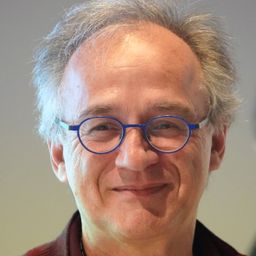
I am an Associate Professor at the University of Gothenburg, Department of Conservation (UGOT-C), since long involved in the development of the bachelor’s and master’s programs at UGOT-C as well as lecturer at a number of Regional Restoration Camps in the western Balkans organized by Cultural Heritage without Borders. My professional experience includes position as heritage official at Forsvik industrial heritage site in 2004-09 responsible for regional strategies for industrial heritage in West Sweden. In 2009 I was commissioned moderator for the UGOT initiative on Heritage Studies as part of strengthening cross-disciplinary research, contributing to the establishment of the Association of Critical Heritage Studies in 2012. During these years, I was part of a number of activities focusing on the former Union Carbide facility in Bhopal, India. Between 2012 and 2018 I was Head of department (UGOT-C), and from August 2018 to February 2019 I did a sabbatical in Tirana, Albania, cooperating with Cultural Heritage without Borders Albania, and the Department of Archaeology and Heritage Studies, University of Tirana. Presently I am the ICOMOS lead scientist in the Charter Alliance project (https://charter-alliance.eu/) co-heading WP2 together with E.C.C.O.
References:
(Forthcoming) Lagerqvist, B., Némethy, S., Nilsson, A. (2022) Landscape Observatory Västra Götaland & Balaton Ecomuseum – A Swedish-Hungarian Interaction for Sustainable Landscape management. Cultivating Continuity of the European Landscape, UNISCAPE. Springer
Némethy, S., Ternell, A., Bornmalm, L., Lagerqvist, B., Szemethy, L. (2022) Environmental Viability Analysis of Connected European Inland–Marine Waterways and Their Services in View of Climate Change. Atmosphere 2022, 13(6), 951. https://doi.org/10.3390/atmos13060951
Lagerqvist, B. (2022) Concepts of integrated conservation as inroads to sustainable management of cultural landscapes. Special issue of Antropologji, Materializing Modernity. Landscape, Architecture and Anthropology intersections in 20th-century rurality, vëllimi 4/ numër 1/ 2021. Open Access Scientific Journal of the Institute of Cultural Anthropology and Art Studies - Academy of Albanian Studies, (ISSN 2617-9768 and ISSN 2706-5995)
http://iaksa.edu.al/wp-content/uploads/2022/07/ANTROPOLOGJI-vol.-4_no.-1_2021-1.pdf
Bornmalm, L. & Lagerqvist, B. (2022) From Rustic Fishing Boats to Steel Trawlers: The development of fishing vessels on the West Coast of Sweden, 1850––1980. Mariner’s Mirror, Vol 108, 2022 – Issue 1, pp. 66-89. https://doi.org/10.1080/00253359.2021.1978260
Lagerqvist, B., Bornmalm, L., & Nemethy, S. (2021) European inland waters: The history of seafaring, shipping, and shipyards at the Lake Balaton. Ecocycles, 7(1), 73–87. https://doi.org/10.19040/ecocycles.v7i1.194
Lagerqvist, B. (2020) Education and training in heritage practices – The case of heritage craft education at University of Gothenburg as an opportunity for Albania, Ecocycles, Vol 6, No 1, pp. 1-12. https://doi.org/10.19040/ecocycles.v6i2.179
Lagerqvist, B. & Bornmalm, L. (2018) The steamer s/s Bohuslän as industrial heritage. A basis for re-thinking heritage practices. Cultural Heritage Preservation: the Past, the Present and the Future. Eds. Tomas Nilson & Kristina Thorell. Forskning i Halmstad nr 24, Halmstad University, pp 47-64. ISBN 978-91-87045-94-3
Lagerqvist, B. (2017) Conservation or reconciliation? Industrial heritage practices at a turning point. Heritage and peacebuilding. Heritage Matters. Eds. Diana Walters, Daniel Laven & Peter Davies. Martlesham, UK: Boydell & Brewer Ltd., pp 221-234. ISBN 978-1-78327-216-7
Lagerqvist, B. (2015) The complexity of heritage and societal development – The example of Gjirokastra, Albania. Ecocycles, Vol 1, No 2. http://dx.doi.org/10.19040/ecocycles.v1i2.29
Sessions in which Bo Lagerqvist participates
quarta-feira 31 agosto, 2022
Sessions in which Bo Lagerqvist attends
domingo 28 agosto, 2022
Join the conference organisers and TICCIH board members for a welcome cocktail and some festive words of introduction, in the former forge of the École technique de Montréal, founded in 1909, now part of the Université du Québec à Montréal campus.
segunda-feira 29 agosto, 2022
Industrialization processes have been global from their very beginning. However, their interpretation still tends to be limited to specific locations or regions, and to specific time periods. Regularly, for example, it is stated that the industrial revolution started in Europe, from where it spread to the world, supposedly bringing technological and social progress to „less developed“ countries. Earlier periods of technology and knowledge transfer processes, that were already in place in t...
Industrialization processes have been global from their very beginning. However, their interpretation still tends to be limited to specific locations or regions, and to specific time periods. Regularly, for example, it is stated that the industrial revolution started in Europe, from where it spread to the world, supposedly bringing technological and social progress to „less developed“ countries. Earlier periods of technology and knowledge transfer processes, that were already in place in t...
Industrialization processes have been global from their very beginning. However, their interpretation still tends to be limited to specific locations or regions, and to specific time periods. Regularly, for example, it is stated that the industrial revolution started in Europe, from where it spread to the world, supposedly bringing technological and social progress to „less developed“ countries. Earlier periods of technology and knowledge transfer processes, that were already in place in t...
Si la vallée du canal de Lachine a été le berceau de l’industrialisation canadienne, la géographie industrielle métropolitaine ne s’y est pas confinée, peu s’en faut, Outre les grandes concentrations d’entreprises des quartiers centraux, elle est constituée des réseaux infrastructuraux, d’une douzaine de centrales hydroélectriques et des ensembles manufacturiers disséminés dans une quinzaine de petites villes aujourd’hui intégrées dans l’aire métropolitaine. La conférence proposera un surv...
terça-feira 30 agosto, 2022
Industrialization processes have been global from their very beginning. However, their interpretation still tends to be limited to specific locations or regions, and to specific time periods. Regularly, for example, it is stated that the industrial revolution started in Europe, from where it spread to the world, supposedly bringing technological and social progress to „less developed“ countries. Earlier periods of technology and knowledge transfer processes, that were already in place in t...
This session focuses on company towns from the perspective of urban planning. “Company towns” are here defined as single-enterprise planned communities, usually centered around a single industry, where a company commissions an urban plan, builds housing for its workers, and sets up recreational, commercial, institutional or community facilities. While these are now endangered by a second wave of deindustrialization, we observe that, aside studies or monographs of individual towns that popu...
Industrialization processes have been global from their very beginning. However, their interpretation still tends to be limited to specific locations or regions, and to specific time periods. Regularly, for example, it is stated that the industrial revolution started in Europe, from where it spread to the world, supposedly bringing technological and social progress to „less developed“ countries. Earlier periods of technology and knowledge transfer processes, that were already in place in t...
quarta-feira 31 agosto, 2022
Industrialization processes have been global from their very beginning. However, their interpretation still tends to be limited to specific locations or regions, and to specific time periods. Regularly, for example, it is stated that the industrial revolution started in Europe, from where it spread to the world, supposedly bringing technological and social progress to „less developed“ countries. Earlier periods of technology and knowledge transfer processes, that were already in place in t...
The Global and Local Section of TICCIH aims to continue its collaborative work by organising a separate session within the framework of the 18th congress in Montreal, Canada. Following its previous sessions centred on various subjects at the Freiberg, Tampere, Taipei and Lille TICCIH conferences, this time the Section will focus on the identity of industrial civilisation in the post-communist countries in Central and Eastern Europe from the angle of its industrial heritage, lost or preserv...
The Global and Local Section of TICCIH aims to continue its collaborative work by organising a separate session within the framework of the 18th congress in Montreal, Canada. Following its previous sessions centred on various subjects at the Freiberg, Tampere, Taipei and Lille TICCIH conferences, this time the Section will focus on the identity of industrial civilisation in the post-communist countries in Central and Eastern Europe from the angle of its industrial heritage, lost or preserv...
This tour offers an excursion on a privatized deck of Montreal's bateau-mouche; a playful guided tour that takes in some of the city's industrial landmarks from the St. Lawrence River.The tour is priced to cover additional costs; the fee includes access to the bateau-mouche, the tour and a drink.Departure will be on foot from the conference venue; boarding is at 3:45 p.m. at the l...
In this lecture, I would like to talk about deindustrialised communities, heritage and memory in the context of right-wing populism. Drawing on studies of memory and heritage, I argue that right-wing populists have cornered the market on talking about the past of deindustrialised communities. They have successfully misrepresented this rich and complex history to fuel rage, resentment, fear and reactionary nostalgia. Indeed, ‘the past’, and in particular the industr...
quinta-feira 1 setembro, 2022
From its construction to its restoration, immerse yourself in the now and then of this key Canadian industrial heritage site. A country’s central maritime route, a major inland port, the Canadian Lowell (using hydraulic power), the cradle of industrialization, Smokey Valley (using steam), a manufacturing hotspot, the Lachine Canal is all of this and more. For it is also a national historic site, for which
The proposed session will examine the unfolding relationship between industrial heritage and those left behind in adjoining deindustrialized working-class areas. The four papers seek to understand the socio-economic and political impact of recognizing the industrial past in the present. Two guiding questions will be asked. Can industrial heritage support those ‘left behind’ in deindustrialized areas where nothing, or very little, has filled the economic or cultural vacuum? Has industrial h...
The proposed session will examine the unfolding relationship between industrial heritage and those left behind in adjoining deindustrialized working-class areas. The four papers seek to understand the socio-economic and political impact of recognizing the industrial past in the present. Two guiding questions will be asked. Can industrial heritage support those ‘left behind’ in deindustrialized areas where nothing, or very little, has filled the economic or cultural vacuum? Has industrial h...
This lecture will argue that the landscapes of industrial heritage that can be found in different parts of the world are directly related to the place-specific trajectories of deindustrialization. In other words: the different ways in which deindustrialization impacts on local communities has a direct bearing on the emergence of forms of industrial heritage. I will differentialte between deindustrialization paths and related industrial heritage regimes in a) Anglo-...
The South Central district is a former industrial and working-class neighbourhood with a rich and unique heritage. The visit will allow us to discover, among other things, the Macdonald Tobacco factory and the Raymond candy factory, the old workers' housing typical of the district, and the reuse of old buildings for cultural and community purposes. The activity will start at the Frontenac metro station and will end with a visit to the Écomusée du fier monde. Staff will be avail...
sexta-feira 2 setembro, 2022
In this meeting, TICCIH representatives from around the world will present work in the field of industrial heritage in their respective countries. The presentations are based on the national reports that TICCIH has gathered for the 2022 World Congress, but may emphasize particular matters. These can range across several fields where industrial heritage plays a role – from academic research and other forms of knowledge production, to heritage management a...
In this meeting, TICCIH representatives from around the world will present work in the field of industrial heritage in their respective countries. The presentations are based on the national reports that TICCIH has gathered for the 2022 World Congress, but may emphasize particular matters. These can range across several fields where industrial heritage plays a role – from academic research and other forms of knowledge production, to heritage management a...
At every World Congress, the international TICCIH community celebrates a General Assembly of its members. The event is open for any registered member of TICCIH, as well as the wider public. According to the current TICCIH Statutes (https://ticcih.org/about/statutes/), however, only Na...
In the refusal of people in communities abandoned by industrial capital to abandon their own places, we can read an implicit critique of the mobility and unaccountability of capital, raised by those who were once inside (however tenuously or uncomfortably) and now find themselves marginalized, “left behind.” The desire to catch up again, whether through attracting new investment or transvaluing abandoned sites as tourist attractions, makes this an essentially conservative critique that is ...
Come and share the good times of the congress and celebrate your scientific and professional discoveries in a former fruit jam factory, Usine C, built in 1913 and transformed at the end of the 1970s into a place for creation and dissemination.Discover Montreal's gastronomy thanks to an exceptional caterer. Learn about Montreal's musical heritage and the history of the industrial district that brought it to life. Then hear and experience Quebec's musical tradition as you are carried ...
sábado 3 setembro, 2022
Uncover the vestiges of the Canadian Pacifie Railway tracks and the former Angus Shops, which played integral raies in the industrial and residential development of Rosemont. This tour wi/1 give you insight into the industrial past of the neighbourhood and its new life bath as a place to live and to work.A tour designed and guided by Heritage Montreal. Departure at the corner of Rachel and Dézéry streets, 10 minutes walk from Prefontaine metro station








